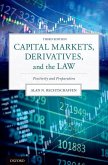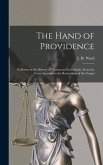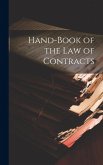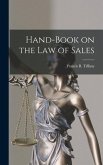Regulating the Visible Hand?
The Institutional Implications of Chinese State Capitalism
Herausgeber: Liebman, Benjamin L; Milhaupt, Curtis J
Regulating the Visible Hand?
The Institutional Implications of Chinese State Capitalism
Herausgeber: Liebman, Benjamin L; Milhaupt, Curtis J
- Gebundenes Buch
- Merkliste
- Auf die Merkliste
- Bewerten Bewerten
- Teilen
- Produkt teilen
- Produkterinnerung
- Produkterinnerung
The economic and geopolitical implications of China's rise have been the subject of vast commentary. However, the institutional implications of China's transformative development under state capitalism have not been examined extensively and comprehensively.
Andere Kunden interessierten sich auch für
![Capital Markets, Derivatives, and the Law Capital Markets, Derivatives, and the Law]() Alan N RechtschaffenCapital Markets, Derivatives, and the Law401,99 €
Alan N RechtschaffenCapital Markets, Derivatives, and the Law401,99 €![In Between and Across In Between and Across]() In Between and Across149,99 €
In Between and Across149,99 €![Law and the Visible Law and the Visible]() Law and the Visible107,99 €
Law and the Visible107,99 €![Hand-List of Legislative Sessions and Session Laws: Statutory Revisions, Compilations, Codes, Etc., and Constitutional Conventions of the United State Hand-List of Legislative Sessions and Session Laws: Statutory Revisions, Compilations, Codes, Etc., and Constitutional Conventions of the United State]() Charles Jacob BabbittHand-List of Legislative Sessions and Session Laws: Statutory Revisions, Compilations, Codes, Etc., and Constitutional Conventions of the United State47,99 €
Charles Jacob BabbittHand-List of Legislative Sessions and Session Laws: Statutory Revisions, Compilations, Codes, Etc., and Constitutional Conventions of the United State47,99 €![The Hand of Providence: as Shown in the History of Nations and Individuals, From the Great Apostasy to the Restoration of the Gospel The Hand of Providence: as Shown in the History of Nations and Individuals, From the Great Apostasy to the Restoration of the Gospel]() The Hand of Providence: as Shown in the History of Nations and Individuals, From the Great Apostasy to the Restoration of the Gospel37,99 €
The Hand of Providence: as Shown in the History of Nations and Individuals, From the Great Apostasy to the Restoration of the Gospel37,99 €![Hand-Book of the Law of Contracts Hand-Book of the Law of Contracts]() AnonymousHand-Book of the Law of Contracts57,99 €
AnonymousHand-Book of the Law of Contracts57,99 €![Hand-book on the Law of Sales Hand-book on the Law of Sales]() Hand-book on the Law of Sales41,99 €
Hand-book on the Law of Sales41,99 €-
-
-
The economic and geopolitical implications of China's rise have been the subject of vast commentary. However, the institutional implications of China's transformative development under state capitalism have not been examined extensively and comprehensively.
Hinweis: Dieser Artikel kann nur an eine deutsche Lieferadresse ausgeliefert werden.
Hinweis: Dieser Artikel kann nur an eine deutsche Lieferadresse ausgeliefert werden.
Produktdetails
- Produktdetails
- Verlag: Oxford University Press
- Seitenzahl: 480
- Erscheinungstermin: 16. November 2015
- Englisch
- Abmessung: 236mm x 155mm x 30mm
- Gewicht: 816g
- ISBN-13: 9780190250256
- ISBN-10: 0190250259
- Artikelnr.: 47863024
- Herstellerkennzeichnung
- Libri GmbH
- Europaallee 1
- 36244 Bad Hersfeld
- 06621 890
- Verlag: Oxford University Press
- Seitenzahl: 480
- Erscheinungstermin: 16. November 2015
- Englisch
- Abmessung: 236mm x 155mm x 30mm
- Gewicht: 816g
- ISBN-13: 9780190250256
- ISBN-10: 0190250259
- Artikelnr.: 47863024
- Herstellerkennzeichnung
- Libri GmbH
- Europaallee 1
- 36244 Bad Hersfeld
- 06621 890
Benjamin L. Liebman is the Robert L. Lieff Professor of Law and Director of the Center for Chinese Legal Studies at Columbia University Law School. His current research focuses on Chinese tort law, on Chinese criminal procedure, on the impact of popular opinion and populism on the Chinese legal system, and on the evolution of China's courts and legal profession. Professor Liebman is recognized as one of the leading scholars of Chinese law, and consulted with both the U.S. and Chinese governments on legal developments in China. He previously served as a law clerk to Justice David Souter and to Judge Sandra Lynch of the First Circuit. He is a graduate of Yale, Oxford, and Harvard Law School. Curtis J. Milhaupt is the Parker Professor of Comparative Corporate Law, Director of the Parker School of Foreign and Comparative Law, the Fuyo Professor of Japanese Law, and Director of the Center for Japanese Legal Studies--all at Columbia University Law School. He is also a member of Columbia University's Weatherhead East Asian Institute, the American Law Institute, and the European Corporate Governance Institute. His research, which focuses on comparative corporate governance, the legal systems of East Asia, state capitalism, and the relationship between legal institutions and economic development, has been featured in The Economist, the Financial Times and The Wall Street Journal, and has been widely translated.
* List of Contributors
* Acknowledgments
* Introduction: The Institutional Implications of China's Economic
Development
* Benjamin L. Liebman and Curtis J. Milhaupt
* Part I: Domestic Institutional Implications
* 1. Indigenous Evolution of SOE Regulation
* Deng Feng
* 2. Blowback: How China's Efforts to Bring Private-Sector Standards
into the Public Sector Backfired
* Donald Clarke
* 3. Protecting the State from Itself? Regulatory Interventions in
Corporate Governance and the Financing of China's "State Capitalism"
* Nicholas Calcina Howson
* 4. Quenching Thirst with Poison? Local Government Financing Vehicles
-- Past, Present and Future
* Liao Fan
* 5. Antitrust Regulation of China's State-Owned Enterprises
* Angela Huyue Zhang
* 6. Taxation of State-Owned Enterprises: A Review of Empirical
Evidence from China
* Wei Cui
* 7. Balancing Closure and Openness: The Challenge of Leadership Reform
in China's State-Owned Enterprises
* Li-Wen Lin
* 8. Legal Informality and Human Capital Development in China
* Chen Ruoying
* 9. Reforming China's State-Owned Enterprises: Institutions, Not
Ownership
* Curtis J. Milhaupt and Wentong Zheng
* 10. SOEs and State Governance: How State-Owned Enterprises Influence
China's Legal System
* Zheng Lei, Benjamin Liebman and Curtis J. Milhaupt
* 11. The Social Relations of Chinese State Capitalism
* Mary E. Gallagher
* 12. Chinese State Capitalism and the Environment
* Alex Wang
* Part II: Global Institutional Implications
* 13. China's Rising Outward FDI: Its Reception in Host Countries and
Implications for International Investment Law and Policy
* Karl P. Sauvant and Michael D. Nolan
* 14. The WTO and China's Unique Economic Structure
* Mark Wu
* Part III: Chinese State Capitalism in Comparative Perspective
* 15. The Hybridization of China's Financial System
* Katarina Pistor, Guo Li and Zhou Chun
* 16. Governing State Capitalism: The Case of Brazil
* Mariana Pargendler
* 17. Chinese Exceptionalism or New Varieties of State Capitalism
* Sergio Lazzarini and Aldo Musacchio
* Index
* Acknowledgments
* Introduction: The Institutional Implications of China's Economic
Development
* Benjamin L. Liebman and Curtis J. Milhaupt
* Part I: Domestic Institutional Implications
* 1. Indigenous Evolution of SOE Regulation
* Deng Feng
* 2. Blowback: How China's Efforts to Bring Private-Sector Standards
into the Public Sector Backfired
* Donald Clarke
* 3. Protecting the State from Itself? Regulatory Interventions in
Corporate Governance and the Financing of China's "State Capitalism"
* Nicholas Calcina Howson
* 4. Quenching Thirst with Poison? Local Government Financing Vehicles
-- Past, Present and Future
* Liao Fan
* 5. Antitrust Regulation of China's State-Owned Enterprises
* Angela Huyue Zhang
* 6. Taxation of State-Owned Enterprises: A Review of Empirical
Evidence from China
* Wei Cui
* 7. Balancing Closure and Openness: The Challenge of Leadership Reform
in China's State-Owned Enterprises
* Li-Wen Lin
* 8. Legal Informality and Human Capital Development in China
* Chen Ruoying
* 9. Reforming China's State-Owned Enterprises: Institutions, Not
Ownership
* Curtis J. Milhaupt and Wentong Zheng
* 10. SOEs and State Governance: How State-Owned Enterprises Influence
China's Legal System
* Zheng Lei, Benjamin Liebman and Curtis J. Milhaupt
* 11. The Social Relations of Chinese State Capitalism
* Mary E. Gallagher
* 12. Chinese State Capitalism and the Environment
* Alex Wang
* Part II: Global Institutional Implications
* 13. China's Rising Outward FDI: Its Reception in Host Countries and
Implications for International Investment Law and Policy
* Karl P. Sauvant and Michael D. Nolan
* 14. The WTO and China's Unique Economic Structure
* Mark Wu
* Part III: Chinese State Capitalism in Comparative Perspective
* 15. The Hybridization of China's Financial System
* Katarina Pistor, Guo Li and Zhou Chun
* 16. Governing State Capitalism: The Case of Brazil
* Mariana Pargendler
* 17. Chinese Exceptionalism or New Varieties of State Capitalism
* Sergio Lazzarini and Aldo Musacchio
* Index
* List of Contributors
* Acknowledgments
* Introduction: The Institutional Implications of China's Economic
Development
* Benjamin L. Liebman and Curtis J. Milhaupt
* Part I: Domestic Institutional Implications
* 1. Indigenous Evolution of SOE Regulation
* Deng Feng
* 2. Blowback: How China's Efforts to Bring Private-Sector Standards
into the Public Sector Backfired
* Donald Clarke
* 3. Protecting the State from Itself? Regulatory Interventions in
Corporate Governance and the Financing of China's "State Capitalism"
* Nicholas Calcina Howson
* 4. Quenching Thirst with Poison? Local Government Financing Vehicles
-- Past, Present and Future
* Liao Fan
* 5. Antitrust Regulation of China's State-Owned Enterprises
* Angela Huyue Zhang
* 6. Taxation of State-Owned Enterprises: A Review of Empirical
Evidence from China
* Wei Cui
* 7. Balancing Closure and Openness: The Challenge of Leadership Reform
in China's State-Owned Enterprises
* Li-Wen Lin
* 8. Legal Informality and Human Capital Development in China
* Chen Ruoying
* 9. Reforming China's State-Owned Enterprises: Institutions, Not
Ownership
* Curtis J. Milhaupt and Wentong Zheng
* 10. SOEs and State Governance: How State-Owned Enterprises Influence
China's Legal System
* Zheng Lei, Benjamin Liebman and Curtis J. Milhaupt
* 11. The Social Relations of Chinese State Capitalism
* Mary E. Gallagher
* 12. Chinese State Capitalism and the Environment
* Alex Wang
* Part II: Global Institutional Implications
* 13. China's Rising Outward FDI: Its Reception in Host Countries and
Implications for International Investment Law and Policy
* Karl P. Sauvant and Michael D. Nolan
* 14. The WTO and China's Unique Economic Structure
* Mark Wu
* Part III: Chinese State Capitalism in Comparative Perspective
* 15. The Hybridization of China's Financial System
* Katarina Pistor, Guo Li and Zhou Chun
* 16. Governing State Capitalism: The Case of Brazil
* Mariana Pargendler
* 17. Chinese Exceptionalism or New Varieties of State Capitalism
* Sergio Lazzarini and Aldo Musacchio
* Index
* Acknowledgments
* Introduction: The Institutional Implications of China's Economic
Development
* Benjamin L. Liebman and Curtis J. Milhaupt
* Part I: Domestic Institutional Implications
* 1. Indigenous Evolution of SOE Regulation
* Deng Feng
* 2. Blowback: How China's Efforts to Bring Private-Sector Standards
into the Public Sector Backfired
* Donald Clarke
* 3. Protecting the State from Itself? Regulatory Interventions in
Corporate Governance and the Financing of China's "State Capitalism"
* Nicholas Calcina Howson
* 4. Quenching Thirst with Poison? Local Government Financing Vehicles
-- Past, Present and Future
* Liao Fan
* 5. Antitrust Regulation of China's State-Owned Enterprises
* Angela Huyue Zhang
* 6. Taxation of State-Owned Enterprises: A Review of Empirical
Evidence from China
* Wei Cui
* 7. Balancing Closure and Openness: The Challenge of Leadership Reform
in China's State-Owned Enterprises
* Li-Wen Lin
* 8. Legal Informality and Human Capital Development in China
* Chen Ruoying
* 9. Reforming China's State-Owned Enterprises: Institutions, Not
Ownership
* Curtis J. Milhaupt and Wentong Zheng
* 10. SOEs and State Governance: How State-Owned Enterprises Influence
China's Legal System
* Zheng Lei, Benjamin Liebman and Curtis J. Milhaupt
* 11. The Social Relations of Chinese State Capitalism
* Mary E. Gallagher
* 12. Chinese State Capitalism and the Environment
* Alex Wang
* Part II: Global Institutional Implications
* 13. China's Rising Outward FDI: Its Reception in Host Countries and
Implications for International Investment Law and Policy
* Karl P. Sauvant and Michael D. Nolan
* 14. The WTO and China's Unique Economic Structure
* Mark Wu
* Part III: Chinese State Capitalism in Comparative Perspective
* 15. The Hybridization of China's Financial System
* Katarina Pistor, Guo Li and Zhou Chun
* 16. Governing State Capitalism: The Case of Brazil
* Mariana Pargendler
* 17. Chinese Exceptionalism or New Varieties of State Capitalism
* Sergio Lazzarini and Aldo Musacchio
* Index








